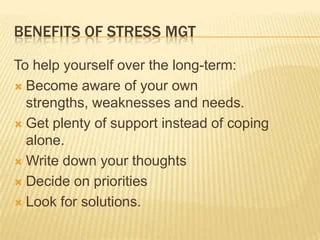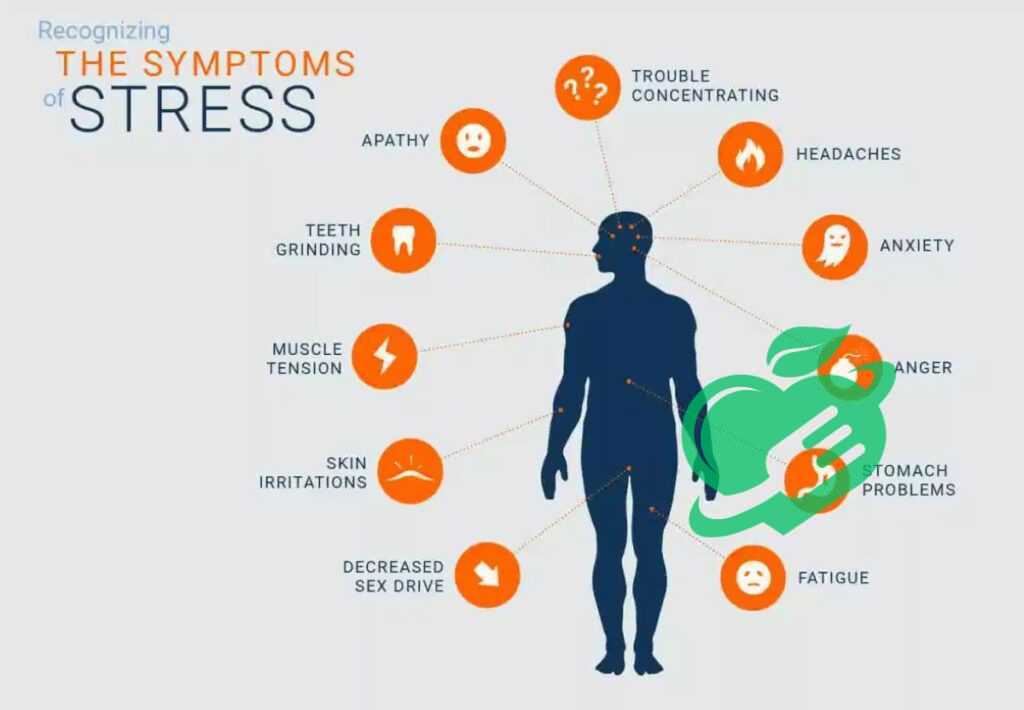What are the benefits of good stress – pros and cons

Stress is a common phenomenon experienced by people from all walks of life. Understanding its nature and implications is essential for maintaining overall well-being. This blog explores the definition of stress, common types, and practical strategies for managing it effectively.
Definition of Stress

Stress can be defined as the body’s response to challenging or demanding circumstances. This response can manifest both physically and emotionally. When faced with, the body undergoes various changes, such as increased heart rate and heightened alertness. While some can be beneficial and motivate individuals to perform their best, excessive or chronic stress can lead to significant negative health consequences.
Types of Stress
There are generally three main types of stress: acute stress, episodic acute stress, and chronic stress.
- Acute Stress: This is the most common form of stress, often resulting from immediate pressures such as meeting deadlines or addressing urgent issues. It is typically short-term and resolves relatively quickly once the issue is addressed.
- Episodic Acute Stress: This type occurs when acute stress happens frequently. Individuals facing this stress often feel overwhelmed and strung out due to their inability to manage their situation, leading to a continuous cycle of stress.
- Chronic Stress: This form of stress is long-term and can arise from ongoing situations such as financial difficulties, a demanding job, or relationship issues. Chronic stress can have lasting effects on a person’s mental and physical health, leading to serious conditions like anxiety, depression, or heart disease.
Understanding these types of stress is crucial for identifying stressors in one’s life and taking appropriate action to manage them effectively.
The Benefits of Good Stress
Increased Motivation
Stress, often referred to as eustress, plays an essential role in driving individuals to pursue their goals. Unlike negative stress, which can be overwhelming, stress creates a sense of excitement and urgency. It motivates individuals to take on challenges, whether in their personal or professional lives. For instance, the anticipation of a job interview can lead to a heightened state of alertness, prompting a candidate to prepare thoroughly and perform better.
Individuals can leverage this kind of stress to cultivate resilience, pushing their limits and enhancing their ability to cope with adverse situations.
Improved Performance
Furthermore, stress has the potential to improve performance in various aspects of life. When faced with reasonable challenges, individuals may find themselves performing at their peak. For example, athletes often experience an adrenaline rush before a competition, which boosts their focus and energy levels. Such stimulation can enhance their physical performance and sharpen their mental acuity.
Good stress can also sharpen time management skills, driving individuals to prioritize tasks effectively and complete them within set deadlines. Recognizing that a certain amount of stress can be beneficial is essential for individuals, as it allows them to embrace challenges as growth opportunities rather than viewing them solely as threats. By understanding and harnessing the benefits of good stress, individuals can foster a healthy mindset that enables them to thrive in their pursuits, ultimately leading to a more fulfilling and accomplished life.
The Pros of Good Stress
Enhanced Focus
Stress acts as a catalyst for enhancing focus, enabling individuals to direct their energy and attention effectively towards tasks. For instance, when faced with an important deadline or presentation, the excitement that comes from stress sharpens one’s concentration. This heightened focus promotes clarity of thought and helps individuals execute their ideas more efficiently. By embracing stress, they can block out distractions and channel their efforts into achieving their objectives.
Boosted Immune System

Research suggests that moderate levels of stress can contribute to a healthier immune system. Individuals exposed to eustress tend to experience a surge in adrenaline, which can lead to increased energy levels and improved physical performance. This dynamic energy facilitates regular exercise and encourages healthy lifestyles, further enhancing the immune response. For example, athletes who harness the power of stress are often more inclined to maintain their training routines, ensuring they stay in optimal shape and ward off illness while competing at their best.
Ultimately, recognizing the positive aspects of stress can be transformative. Individuals can identify opportunities for growth by reframing their mindset around stressors and viewing them as challenges rather than threats. This perspective not only promotes resilience but also encourages a balanced approach to life that can lead to greater satisfaction and well-being. By leveraging good stress for enhanced focus and a boosted immune system, they can improve overall health and productivity, enabling them to navigate the complexities of modern life with confidence. Thus, adopting a mindset that embraces stress opens avenues for continuous improvement and success in everyday endeavors.
Preventing Burnout
In today’s fast-paced world, the risk of burnout is ever-present. Individuals must become aware of the signs of chronic stress, such as fatigue, irritability, and disengagement. Recognizing these symptoms early allows for timely intervention. Taking breaks, delegating tasks, and seeking support from friends, family, or colleagues can significantly reduce feelings of being overwhelmed. Moreover, creating a balanced routine that includes relaxation and leisure activities is vital in preventing burnout. Employers also play a role in managing stress within the workplace by fostering a supportive environment that encourages open communication and employee well-being. By taking these steps, individuals can effectively manage their stress levels and cultivate a healthier relationship with their work and personal lives.
Ultimately, the importance of managing stress cannot be overstated. By remaining mindful of levels and implementing effective coping strategies, individuals can harness the positive aspects of while minimizing its potential harms. This proactive approach contributes to a more fulfilling and productive life.
The Cons of Good Stress
Physical Symptoms

While good stress can be beneficial, it’s important to recognize that it can lead to physical symptoms that can negatively impact one’s health. When people find themselves constantly overwhelmed by deadlines or performance expectations, their bodies may react with muscle tension, headaches, or digestive issues. Prolonged exposure to stress, such as pressure to excel or keep up with fast-moving projects, can eventually lead to fatigue or a weakened immune system. Therefore, recognizing when stress has crossed the line and become an overload is crucial to avoiding these unwanted physical consequences.
Mental Health Impact

The mental health implications of good cannot be overlooked. Although a certain amount of good can propel individuals to achieve their goals, excessive pressure can result in heightened anxiety and restlessness. This phenomenon often manifests in constant worry about meeting expectations, leading to feelings of inadequacy or self-doubt. As individuals strive for high performance and maintain a compelling work-life balance, they may inadvertently neglect their mental well-being. Over time, unresolved good can cause burnout or even develop into anxiety disorders.
Read also: The Sweet Secret: Unveiling the Remarkable Health Benefits of Bee Pollen.
Follow us for more updates and breaking news, as we provide you with everything new.




Your article helped me a lot, is there any more related content? Thanks!